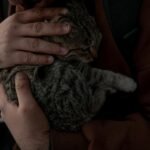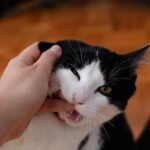Cats are known for their independent nature, yet some breeds have a tendency to wear their hearts on their sleeves. For those who share their lives with these sensitive felines, it comes as no surprise that they can take heartbreak very personally. Whether it’s the absence of their favorite human or the loss of a fellow furry friend, these cats show their emotions in profound ways. Let’s explore the cat breeds that are most likely to take heartbreak to heart and how they express their feelings.
Persian Cats: The Emotional Royals
Persian cats are often regarded as the royalty of the cat kingdom, with their luxurious coats and regal demeanor. However, beneath that majestic exterior lies a heart that’s deeply sensitive. Persians form strong bonds with their human companions and can display signs of distress when these bonds are disrupted. If a Persian cat senses a change in their environment or routine, they may become withdrawn or even refuse to eat. Their large, expressive eyes tell tales of longing and sadness, making it impossible not to notice when they’re feeling blue. Owners of Persian cats often find themselves providing extra cuddles and comfort to soothe their emotional furballs.
Siamese Cats: The Vocal Heartbreakers
Siamese cats are famous for their vocal nature, and this extends to expressing their feelings of heartbreak. These cats thrive on companionship and can become quite distressed when their human or feline companions are absent. A Siamese cat will often vocalize their feelings through loud meows, as if they’re calling out for their lost loved ones. Their need for attention and interaction means that they feel loneliness more acutely than other breeds. Siamese cats require reassurance and engagement to help them navigate through their emotional turmoil, making playtime and affection essential in their lives.
Maine Coons: The Gentle Giants
Maine Coons are known for their large size and gentle disposition, but they’re also incredibly sensitive to changes in their environment. These affectionate giants love their families and can get quite attached to their human companions. When faced with heartbreak, Maine Coons may become more clingy or exhibit signs of anxiety. They have a unique way of expressing their feelings, often seeking out physical contact or following their owners around the house. Their emotional intelligence makes them intuitive to their owner’s moods, and they expect the same level of attunement in return.
Ragdolls: The Laid-Back Lovers
Ragdolls are aptly named for their tendency to go limp when held, showcasing their trust and affection. However, this laid-back demeanor doesn’t mean they’re immune to emotional distress. Ragdolls are deeply attached to their families and may struggle with separation anxiety when left alone for extended periods. They show their heartbreak through behavioral changes, such as increased vocalization or hiding. Keeping a consistent routine and providing plenty of love and attention helps these gentle souls feel secure and cherished, mitigating their feelings of loss.
Burmese Cats: The Playful Empaths
Burmese cats are known for their playful and social nature, making them one of the more empathetic breeds. They form strong bonds with their families and are quick to notice when something is amiss. When faced with heartbreak, Burmese cats may become more reserved or cling to their owners for comfort. They express their feelings through body language, often seeking physical closeness or engaging in comforting behaviors like kneading. Providing them with interactive toys and companionship can help ease their emotional burdens and bring back their playful spirit.
Scottish Folds: The Curious Companions
Scottish Folds are easily recognizable by their distinctive folded ears and curious expressions. They are devoted companions who thrive in a loving environment. When faced with heartbreak, Scottish Folds may become less active or lose interest in their favorite activities. Their curiosity can turn into anxiety, especially if their routine is disrupted. Owners can help their Scottish Folds by maintaining a stable environment and offering plenty of attention and interactive play. This ensures that these curious companions continue to feel secure and loved.
Oriental Shorthairs: The Intuitive Pals
Oriental Shorthairs are known for their sleek appearance and lively personalities. They are highly intelligent and form strong emotional connections with their owners. When faced with heartbreak, Oriental Shorthairs may become more vocal or exhibit changes in behavior. Their intuition allows them to sense their owner’s emotions, and they often mirror these feelings. Establishing a routine and providing mental stimulation can help these intuitive pals cope with their emotional challenges, ensuring they remain happy and balanced.
Devon Rex: The Mischievous Sweethearts
Devon Rex cats are characterized by their mischievous nature and affectionate demeanor. They are known to form strong bonds with their human companions, often following them around the house like a shadow. When faced with heartbreak, Devon Rex cats may become more clingy or display signs of anxiety. Their expressive eyes and playful antics make it clear when they’re feeling down. To support their emotional well-being, owners should engage them in interactive play and provide plenty of love and attention, helping these sweethearts feel cherished and secure.
In conclusion, these eight cat breeds demonstrate that even the most independent creatures can experience heartbreak. By understanding their emotional needs and providing the necessary support, cat owners can help their furry friends navigate through tough times and maintain their happiness and well-being.

Growing up traveling and experiencing new cultures and wonders, I have had a passion for nature, adventuring, photography, and videography. I am currently working towards a BSc in Biodiversity and Ecology at Stellenbosch University, and I hope to specialise in Marine Sciences one day.
Please send any feedback to Feedback@animalsaroundtheglobe.com






